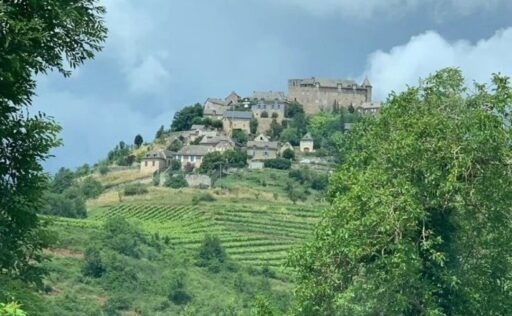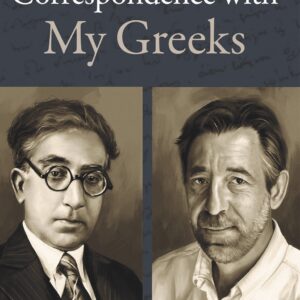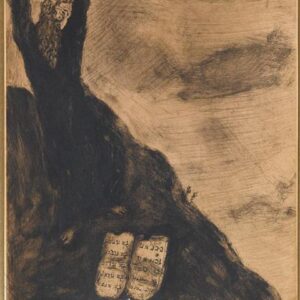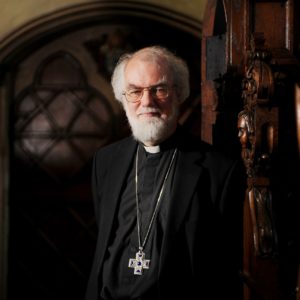I am descended from German-speaking immigrants for whom the border between France and what would become Germany moved back and forth over the centuries, largely depending on the fickle winds of French military aggression. It may surprise some that from Cardinal Richelieu’s ascent to power during the Thirty Years War (1618-1648) until Napoleon’s defeat at Waterloo in 1815, the dominant military force on the European continent was French, not the hopelessly fragmented Germanic principalities within the misnamed Holy Roman Empire. By the time France invaded the nascent German Confederation in 1870—a strategic blunder Emperor Napoleon III would quickly regret—my longsuffering ancestors had had enough. Some of my flawed vorvatern, who include drunkards, draft dodgers, and bigamists, left for America after the short-lived European revolutions of 1848, but most fled in 1870, refusing to declare allegiance to either side in the Franco-Prussian War. They eventually came to Cincinnati, joining other southwestern Germans for whom the then grapevine-covered hills of the Ohio river recalled vineyards along the Moselle and Rhine. So many Germans settled just north of the Miami and Erie canal that the waterway was nicknamed “the Rhine” and the neighborhood is to this day known as Over the Rhine, from which the eponymous husband and wife Americana/folk music duo gets its name.
The neighborhood has experienced a renaissance of late, but its German character began to evaporate in the early twentieth century. Anti-German sentiment spiked when the US entered the First World War. German language newspapers and kindergartens suffered forcible closure, German music and athletic clubs disbanded, and local names abruptly changed: Hanover Street became English Street and the German National Bank was rechristened Lincoln National. Prohibition shuttered the seventeen breweries in Over the Rhine and the nearby West End. The descendants of those nineteenth century immigrants resettled in the suburbs, carrying vestiges of this complex geopolitical history with them.
Accordingly, my interior life often proves a struggle between Teutonic Ordnung and Gallic laissez-faire. I’ve seen my German roots on visits to the Vaterland: tidy vegetable gardens like the one my father kept, a measured propriety bordering on obsessive-compulsion, and a dreamy Romanticism often overlooked by outsiders for whom German history and culture is a monotonous succession of wurst and potatoes, oom-pah-pa bands and lederhosen, and—most of all—lust for power and unspeakable atrocities. Here, it should be noted that French demands for ruinous German monetary reparations and humiliating land losses following the First World War all but guaranteed a second, more destructive conflict. Furthermore, post-World War II Germany has done reasonably well in teaching subsequent generations of their nation’s history of savage violence, poisonous anti-Semitism, and bureaucratized cruelty. Yet the enormity of German guilt staggers the mind and soul, even for an immigrant. While I can be in Germany, I never feel fully of it. If my biorhythms are better suited to Mediterranean climes—cappuccino mornings; long, delightful lunches followed by afternoon naps; and late, gregarious evenings—perhaps that’s a vestige of some buried Francophilia making itself known.
Not that my early experiences with the French had been good. Memories of a long ago visit to Paris where everyone my wife and I met sneered at our linguistic shortcomings, refusing to reveal their fluency in English up until the moment money was at stake, left me cold. We quickly decamped for Trier, a lovely and welcoming ancient city just over Germany’s border with Luxembourg. We remembered the contrast whenever friends declared their affection for la belle France.
We had a better time years later on a day trip from Germany to French Alsace, where towns betray their shifting political histories with names like Strasbourg, Colmar, and Metz. I can hold a decent conversation in German, which a few locals welcomed with a smile. They spoke openly of their Franco-German heritage in art and architecture and taught me subtle differences between German and French Riesling, a white wine unfairly dismissed as vapid and uniformly sweet that pairs well with savory versions of a pizza-like delicacy Germans call flammkuchen and the French name tarte flambée.
Yet my lingering misgivings about the French were recently demolished during a reunion with my wife’s college friends. Our gathering place was a rambling, book-filled seventeenth century home in Aveyron, a mostly rural department in southern France. Aveyron is part of Occitania, a region named for the once common Romance tongue spoken by the troubadours. As the French monarchy gradually asserted control over Occitania, northern French replaced the old speech, further proof that the difference between a language and a dialect is that the former has an army. Patriotic but proud of their regional distinctiveness, the people we met proved welcoming, helpful, and respectful of my attempts at conversation in rudimentary French.
Visitors must go out of their way to find a bad meal in Aveyron. The countryside is fair and fertile, rich with vineyards, produce farms, and livestock pastures dividing the hilly landscape into elegant polygons bounded by trees and hedges. In early July, hay rolls stand in newly mown fields, grapevines grow heavy with still-green fruit, and roadsides burst with wildflowers. Roquefort cheese, made from the milk of Aveyronnais sheep, ages in the limestone caves of Roquefort sur Soulzon. Stands at weekly village markets groan with other local cheeses, dried salamis called saucisson, freshly baked bread, tender mushrooms, and cartons of aligot, a fondue-like blend of cheese, potatoes, and crème fraîche heated and beaten until it forms silky ribbons of indescribable goodness.
As is my habit, I prepared for our stay by reading whatever I could get my hands on: histories, biographies, historical novels, and medieval Occitan poetry. Once there, however, I found that the region’s long and varied past defied easy summary. My wife and I walked past gnarled grapevines grafted onto North American rootstock in response to the devastating nineteenth century phylloxera blight, an ingenious technique that saved European viticulture from extinction. We hiked part of the Camino de Santiago to tour the eleventh century Romanesque Abbey Church of Sainte Foy in the charming village of Conques. We marveled at delicate 27,000-year-old paintings of horses, mammoths, and bison preserved in the cave of Peche Merle.
Even our short stay in Paris at our trip’s end proved delightful. My French was somewhat better than on our first visit, but we arrived more prepared in other ways, not rushing to see too much, budgeting our time to shop at the legendary Shakespeare & Company bookstore and tour the breathtakingly beautiful stained-glass windows of Sainte Chapelle. We dined at outdoor tables on the rive gauche where polite waitstaff took our orders without a grimace and discreetly lingered at the margins of view, letting us savor the food, the place, the moment. It was good to be there.
As Mark Twain aptly observed, “Travel is fatal to prejudice, bigotry, and narrow-mindedness.” Like the grapevines we passed, my wife and I thrive by grafting new experiences onto old roots. I’m not sure I’ve become a committed Francophile, but I hope to return to la belle France soon, my eyes and heart having been opened to a way of being in the world I’d long disparaged.
Brian Volck is a pediatrician and writer living in Baltimore. He is the author of a poetry collection, Flesh Becomes Word, and a memoir, Attending Others: A Doctor’s Education in Bodies and Words. His website is Brianvolck.com





